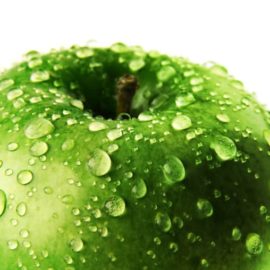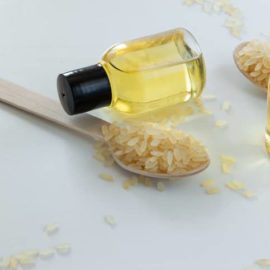The use of natural ingredients is one of the most noteworthy trends dominating the beauty market for years. In such a context, consumers are now so familiarised with the use of fruit extract for skin that it’s no longer a differentiating factor for products.
However, combining botanical ingredients with innovative sustainable practices is rewarded by current consumer preferences. This is exactly what Provital’s new active ingredient, POMARAGE™ does. Find out how.
Content
A sustainable sourcing process: The new eco-friendly consumer demands
Increasingly conscious and informed consumers are the new trend setters for the beauty market and they are demanding brands to take further steps to solidify their sustainable claims.
For instance, in the UK, 79% of adults feel that the beauty industry needs to put more effort into sustainable production, according to figures published by Bloomberg.
There are a few ways for beauty brands to respond to this:
- Zero-waste must become preventive. Supply chains must be understood as a holistic process where waste production and environmental damage is not eliminated afterwards, but prevented. This includes notions such as circular beauty, which has moved from being a specialized concept to becoming a mainstream commercial opportunity.
While launches with ethical and recycling-related messages tripled between 2019 and 2020 (according to Mintel) brands should look for new ways to stand out in their zero-waste efforts. This also includes the ethical sourcing of ingredients in the use of a fruit extract for skin.
In fact, sustainability demands go hand in hand with new self-acceptance narratives, where trends such as the “well-aging” movement and positive messages are considered to be more in tune with the environment as well as realistic.
- Brand honesty and transparency. Consumers are demanding companies to be transparent about potentially delicate processes such as ingredient sourcing. This means every movement towards a more sustainable product development should be communicated in an honest light, in order to avoid the dreaded “green washing”.
POMARAGE™: Upcycling apple waste for a ground-breaking active ingredient
In the search of giving brands the possibility to develop their own sustainable, differentiated plant-based catalogue, at Provital we’re always trying to innovate by going a step beyond expectations.
As a consequence, we’ve developed POMARAGE™, the cosmetic result of recovering by-products from apple processing from local farming.
Extracted from apple processing waste, this active ingredient goes hand in hand with the customer expectations mentioned above:
- Sourced from a family-run, local artisan cider supplier in Girona (Spain), this active ingredient represents a proactive step towards building an ethical supply chain.
- POMARAGE™ is derived from apple pomace, a waste product generated after apples are pressed to obtain the juice used to make any apple processed good, like cider.
Of the half a million tonnes of apples produced in Spain every year, 25-30% go to waste. Using by-products from the food industry and in collaboration with the Waste Agency of Catalonia, POMARAGE™ guarantees a development based on the circular economy, that minimises the product’s environmental impact (lower carbon footprint) and a reduction in waste generation.
- An honest and simple narrative: the use of a fruit synonymous with health all around the world provides brands with an opportunity to develop a simple yet powerful narrative around health and well-aging.
POMARAGE™ is rich in polyphenols and has shown in vitro efficacy in:
- Effectively regulating the gene expression of certain genes involved in skin aging
- Increasing collagen biosynthesis, including a 382% increase in the expression of collagen I (most abundant type in the skin)
- 133% increase in HAS2 expression, an essential enzyme for the biosynthesis of endogenous hyaluronic acid
- Improving the organisation of collagen fibres and other components of the ECM, such as elastin
- Reducing inflammatory processes and cellular senescence
This active ingredient can be incorporated into natural aging and self-acceptance narratives.
Other narrative opportunities include using the “upcycling” of waste products as a practice that pairs with natural cycles; and the promotion of seasonal cosmetics, which represent a new premiumisation of eco and sustainable products where season-exclusive, specialized beauty products are marketed to the most demanding segment of consumers.
As apple pomace is collected in autumn, limited-edition product lines can be suggested, using the “restorative” and “self-care” narrative traditionally associated with this season.
To sum up, POMARAGE™ stands out among other fruit extract for skin solutions, as it takes sustainability one step further while also providing innovative narrative opportunities for brands.
No comments yet
There are no comments on this post yet.





Leave a comment